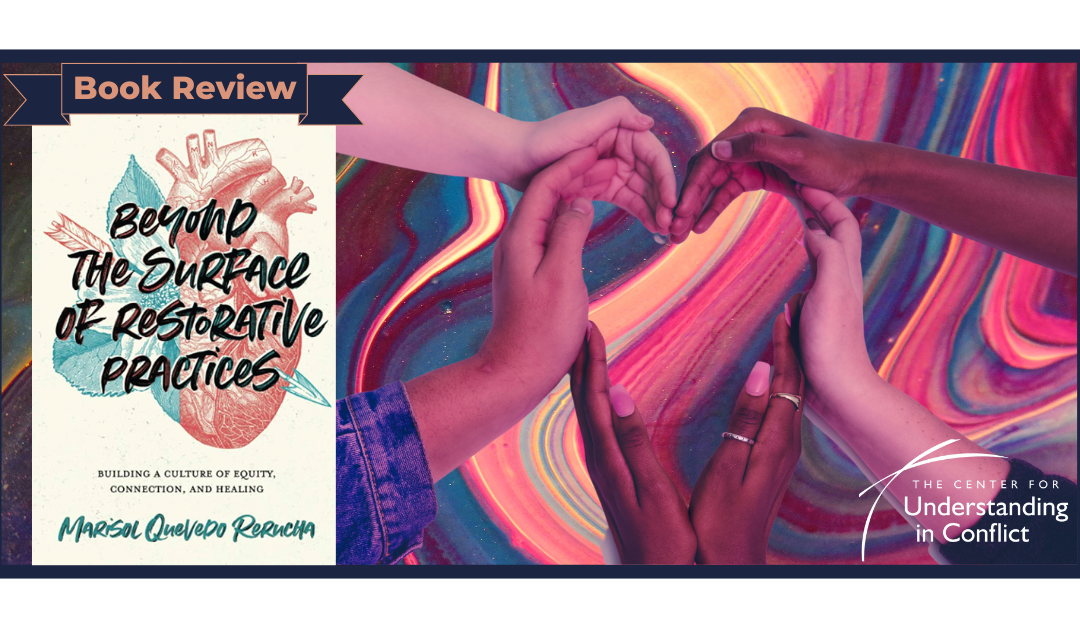Beyond the Surface of Restorative Practices is a compelling and enlightening book that explores the transformative potential of restorative justice, emphasizing the importance of equity, connection, and healing in building a more inclusive and compassionate society. The author lays a solid foundation by explaining restorative practices’ core principles and philosophy, clarifying the distinctions between punitive and restorative approaches, and emphasizing the need for a paradigm shift in addressing conflicts and harm. The author’s clear and concise explanations ensure readers grasp the fundamental concepts before diving deeper into the practical applications.
Throughout the book, Rerucha underscores the importance of creating a culture of equity and connection. She highlights the need to address power imbalances, systemic injustices, and social inequalities, often underlying conflicts. By promoting inclusive practices and providing practical strategies, Rerucha guides readers on fostering genuine connections, building trust, and creating spaces where individuals feel heard, understood, and valued. Another significant theme in the book is the emphasis on healing and transformation. Rerucha discusses the profound impact restorative practices can have on individuals and communities, allowing them to heal from the harm caused by conflicts. Through compelling case studies and personal anecdotes, she illustrates how restorative approaches can facilitate personal growth, resilience, and the restoration of relationships, ultimately leading to transformation and positive change.
Rerucha offers practical guidance and actionable strategies to support readers in implementing restorative practices effectively. From preparing for restorative conferences to facilitating dialogues and resolving conflicts, the author provides step-by-step instructions and insightful tips. The practical tools and resources shared throughout the book equip readers with the necessary skills to navigate complex situations and confidently engage in restorative processes while working to address broader social justice implications. Rerucha encourages readers to actively engage communities and advocate for restorative approaches in various settings. By incorporating community voices and involving all stakeholders, conflict resolution professionals can create lasting change and work towards building a more equitable and compassionate society.
While focused around educational settings, Beyond the Surface of Restorative Practices can be an excellent resource for professionals interested in restorative practices to promote equity and connection, facilitate healing, and contribute to positive change while creating a more compassionate and just world, especially if they are involved in leading training programs around conflict resolution and mediation.
Want to hear from conflict resolution professionals working in restorative justice practice? Check out this episode of our podcast, The Other Chair:
